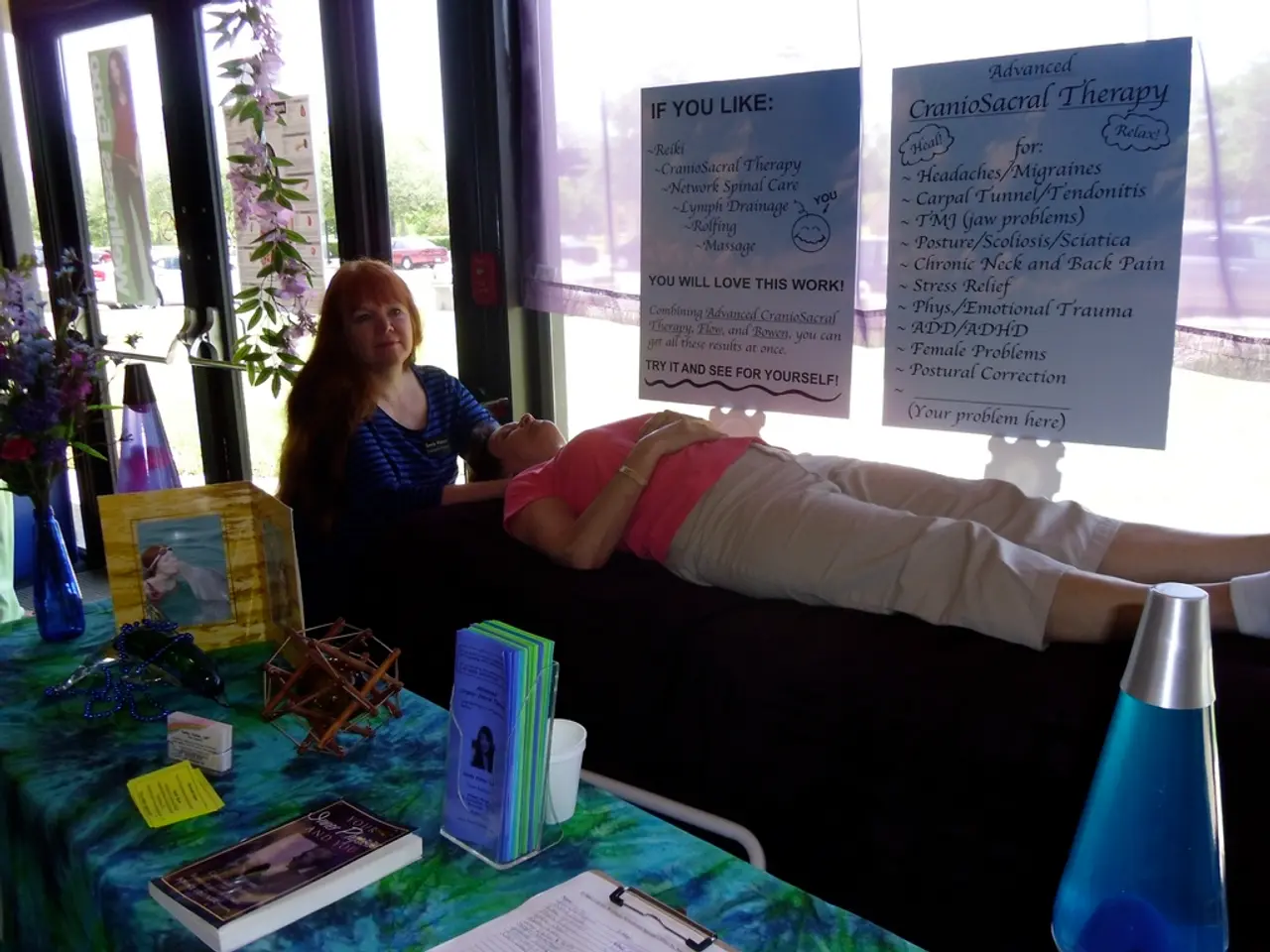Nurturing Mental and Emotional Wellbeing: An Examination of the Vagus Nerve's Impact
In a groundbreaking development, experts, including Dr. Cora Stefanie Weber and the German Heart Foundation, have identified the vagus nerve as a crucial factor in maintaining heart health and emotional well-being. People with an active vagus nerve and high heart rate variability (HRV) are said to experience better concentration, emotion control, and emotional well-being.
To strengthen the vagus nerve and reduce the risk of heart disease, various methods have been suggested. These strategies focus on enhancing vagal tone, promoting heart health, and aiding nervous system regulation.
Controlled breathing techniques, such as deep breathing or the box breathing method (inhaling for four counts, holding for four, exhaling for four, and holding again), are among the most potent ways to activate the vagus nerve. Slower, deeper, diaphragmatic breathing patterns, like inhaling for four counts, holding for seven, and exhaling for eight, have been found to increase parasympathetic activity, reduce heart rate, and induce relaxation.
Mindful movement and mind-body practices, including yoga, tai chi, qi gong, stretching, and gentle spinal movements, also stimulate the vagus nerve and enhance parasympathetic nervous system function. These practices integrate mind and body awareness, supporting nervous system balance and cardiovascular health.
Social connection and positive interactions play a significant role in activating the vagus nerve's role in social engagement, promoting a sense of safety, and helping regulate cardiac function. Establishing safe and positive social bonds, including eye contact, warm vocal tones, and shared laughter, can have a positive impact on vagus nerve function and cardiovascular risk.
Vocal exercises, such as singing, chanting, humming, and even gargling, also activate the muscles connected to the vagus nerve near the throat, increasing heart rate variability (HRV), a marker of cardiac and autonomic health.
Meditation and laughter practices, like loving-kindness meditation and natural laughter, can increase vagal tone by fostering positive emotions and social connection. These practices have been found to improve mood and HRV.
Dietary components, such as the consumption of fish and omega-3 fatty acid supplementation, have been shown to benefit the vagus nerve, supporting both brain and heart health.
Acupuncture, which stimulates sensory nerves connected to the autonomic nervous system, has also been found to enhance parasympathetic tone and reduce inflammation, potentially influencing vagus nerve function and cardiovascular risk.
These methods collectively contribute to vagal tone improvement, heart rate regulation, and reduced risk of heart disease by enhancing parasympathetic (vagal) activity and lowering sympathetic overdrive. Emphasizing breathwork, movement, social engagement, meditation, and supportive dietary habits aligns with recommendations from cardiovascular research and institutions like the German Heart Foundation.
It's important to note that many people live with chronic stress, with their sympathetic nervous system often overactive. Greater awareness of one's own feelings is associated with a more stable heart rhythm and can act as a protective factor. People with anxiety and panic disorders, however, have a significantly increased risk of heart attack.
The effectiveness of mechanical stimulation, such as humming or gargling, in promoting relaxation by stimulating the vagus nerve through vibrations in the neck area is not yet sufficiently proven. However, researcher Nils Kröger from the University of Tübingen is studying the vagus nerve and its potential use for relaxation.
In conclusion, strengthening the vagus nerve can contribute to protecting the heart and promoting emotional well-being. A healthy lifestyle, including a balanced diet, regular exercise, stress management techniques, and psychotherapeutic measures, can help reduce the risk of heart disease and improve overall health.
- Enhancing vagal tone through controlled breathing techniques, such as deep breathing or the box breathing method, can activate the vagus nerve and potentially reduce the risk of heart disease.
- Mindful movement and mind-body practices, like yoga, tai chi, qi gong, and gentle spinal movements, stimulate the vagus nerve and aid in nervous system regulation, thereby promoting cardiovascular health.
- Consumption of fish and omega-3 fatty acid supplementation has been shown to benefit the vagus nerve, supporting both brain and heart health.




